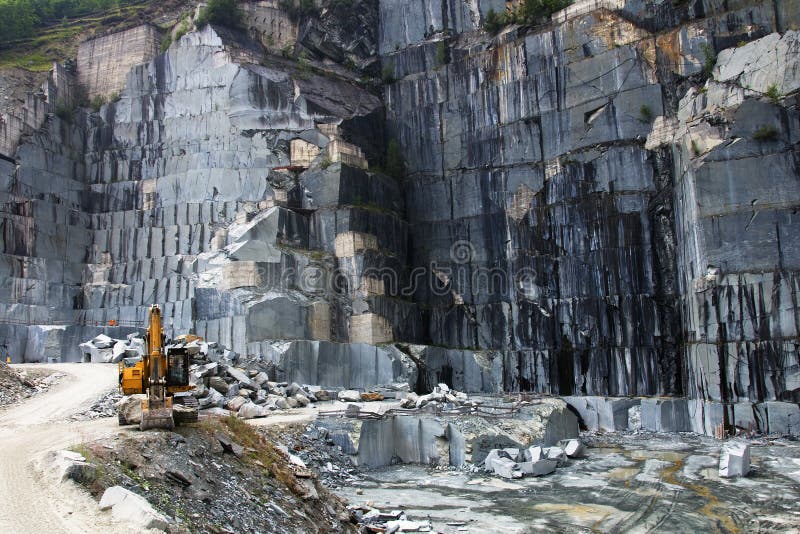Unveiling the Mysteries of Granite Quarrying: Where Stamina and Style Meet
The world of granite quarrying is a realm where the raw stamina of nature merges with human artistry to create structures that stand the examination of time with an air of style. From the depths of quarries to the precise sprucing up in workshops, the procedure of changing granite right into building wonders is an intricate dancing of tradition and development. As we peer right into the midsts of this old craft, we start to reveal the hidden intricacies that shape the very essence of our developed atmosphere.
The Beginnings of Granite Quarrying
In the record of building background, the beginnings of granite quarrying are shrouded in a tapestry of old workmanship and geological marvels. Going back to ancient Egypt and Mesopotamia, the extraction of granite from quarries marked the beginning of a journey that would eventually result in the development of a few of the world's most renowned structures.
Granite quarrying's roots can be traced to the knowledgeable craftsmens that identified the stone's sturdiness and aesthetic charm. Via a mix of primitive tools and sheer decision, these very early quarry employees uncovered granite blocks that would certainly come to be the building blocks of people.
As human beings advanced, so did the techniques of quarrying granite. The Romans, renowned for their engineering prowess, established innovative approaches for extracting granite to construct monuments, holy places, and roads that stood the test of time.
The legacy of these old quarrying practices remains to form modern architecture, with granite remaining a sign of toughness and beauty in building and construction jobs around the globe. (granite quarries in south africa)
Devices of the Quarrying Trade
The evolution of granite quarrying methods from ancient civilizations to modern-day times highlights the important role played by the tools of the quarrying trade in forming the market's methods. In old times, quarrying devices were primary, usually consisting of chisels, hammers, and wedges made from products like bronze or iron. These devices needed considerable workforce and time to essence granite blocks from quarries.

Furthermore, the intro of pneumatic devices and high-powered equipment has actually dramatically minimized the physical labor required in quarrying operations, enhancing employee security and performance. As the quarrying market continues to introduce, the tools of the profession stay at the center of driving development and shaping the future of granite removal.
Removing Blocks of Granite
Using accuracy machinery and progressed techniques, the extraction of granite obstructs from quarries has actually become an innovative procedure in the modern quarrying sector. Managed blowing up methods are after that employed to damage apart the granite right into manageable areas.

Polishing and Finishing Methods
To accomplish a remarkable surface area on granite blocks, proficient artisans use a series of precise sprucing up and finishing strategies. After the preliminary removal and shaping processes, the granite blocks undergo a thorough polishing phase to enhance their all-natural appeal and sturdiness.
In addition to sprucing up, ending up methods are used to further refine the granite's look. These techniques may include flaming, sharpening, or cleaning, each offering special structures and coatings to fit various aesthetic preferences. Flaming, as an example, entails exposing the granite surface area to heats to develop a rough, textured finish, suitable for exterior applications where slip-resistance is important. Honing, on the other hand, gives a matte coating that is smooth to the touch, best for interior kitchen counters and floor covering. By very carefully selecting and applying these polishing and ending up techniques, craftsmens can transform raw granite blocks into beautiful pieces that display both stamina and style.

Ecological Influence and Sustainability
With the expanding emphasis on environmental awareness in the market, granite quarrying practices are progressively looked at for their effect on all-natural resources and long-term sustainability. In you can try these out addition, the transportation of granite from quarries to processing facilities creates carbon exhausts, better contributing to ecological destruction.
To mitigate these impacts and make sure sustainability in granite quarrying, sector stakeholders are taking on different steps. Carrying out innovative innovations to minimize power usage and water use, redeeming quarried land for eco-friendly remediation, and promoting liable sourcing techniques are some techniques being utilized. Certifications such this hyperlink as the Woodland Stewardship Council (FSC) and the Leadership in Power and Environmental Design (LEED) help consumers recognize eco pleasant granite items.
Final Thought
In final thought, granite quarrying is a procedure that needs specialized devices and methods to essence blocks of granite and polish them to a high degree of finish. While the environmental impact of quarrying can be significant, initiatives are being made to boost sustainability methods in the sector. Generally, granite quarrying is a fragile balance in between taking advantage of the strength and elegance of this natural rock while lessening its effect on the setting.
Comments on “Checking Out Granite Quarries in South Africa: A Comprehensive Overview”